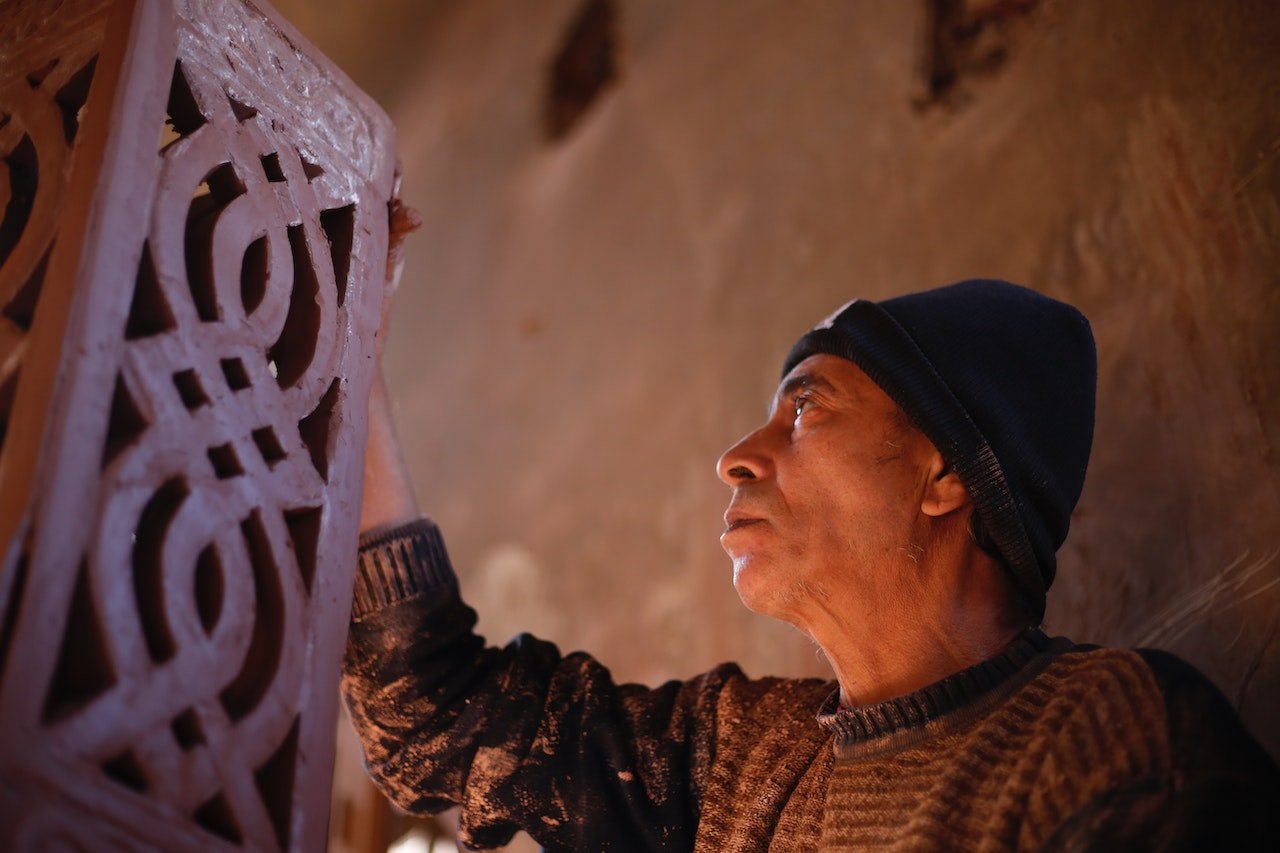Click here to Choose your Next Cheap Tour To Egypt The Price Starts From $25
Egypt is a country with an extraordinary history and culture that has captivated people around the world for centuries. Its unique identity has remained strong even as it evolved over time, adapting to modern times while still preserving its traditional customs and beliefs. In this article, we will explore some of the most important elements of Egyptian culture such as religion, clothing styles, etiquette rules, celebrations marking significant life events, and more. We hope that by taking a closer look at these facets of Egypt’s cultural heritage you can gain a better understanding of how Egyptians live their lives today!
What are the most important traditions in Egyptian culture?
Family Values and Social Bonds
In Egyptian culture, family and social bonds hold great significance. Extended families often live together, sharing resources and providing support to one another. The elderly are highly respected and are expected to be taken care of by their children.
Hospitality
Egyptians are renowned for their warm hospitality, and it is deeply embedded in their culture. Visitors to Egypt can expect to be welcomed with kindness and generosity; hosts will often provide food, drink, and a comfortable environment for guests. This hospitable attitude towards visitors has been part of Egyptian tradition since ancient times, demonstrating the importance that Egyptians place on making sure that everyone feels at home when they visit.

Festivals and Celebrations
Egyptian culture is renowned for its vibrant and diverse festivals that bring people from all walks of life together to celebrate their shared heritage. Two of the most significant religious festivals are Ramadan, a month-long celebration in which Muslims observe fasting and prayer; and Eid al-Fitr, a joyous three-day feast marking the end of Ramadan. Coptic Christmas is also widely celebrated by Christians across Egypt on January 7th each year with traditional feasts, music performances, parades, and more. These beloved festivities serve as an important reminder that Egyptians are united in their cultural identity despite differences in religion or background.
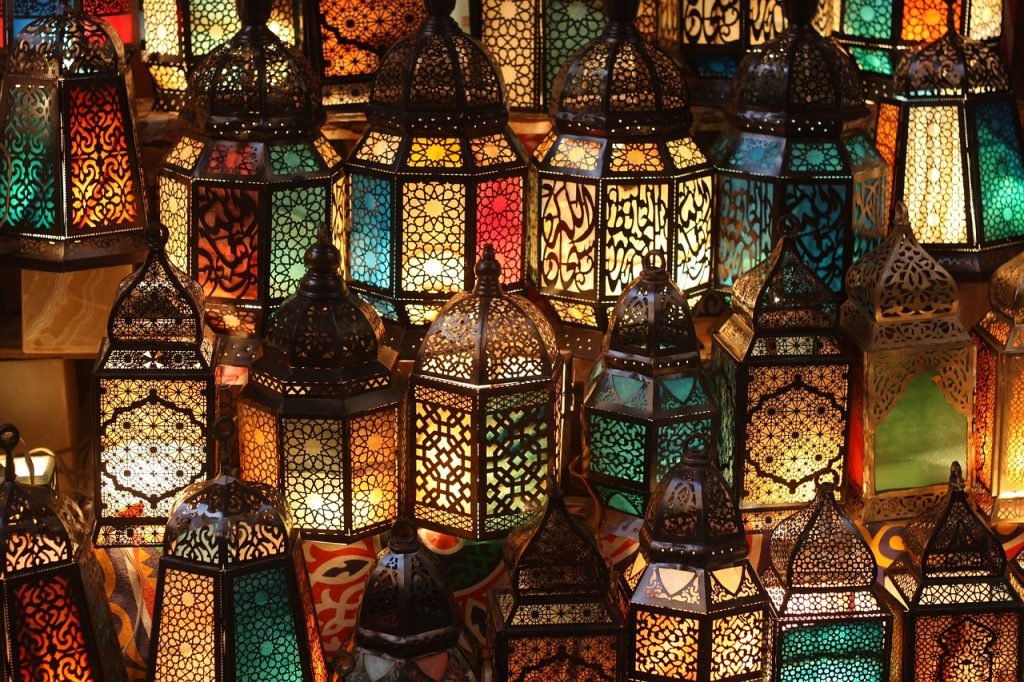
How has ancient Egyptian culture influenced modern Egypt?
Language and Writing
The modern Egyptian Arabic language is heavily influenced by the ancient Egyptian language, with many words and phrases still used to this day. Additionally, the hieroglyphic writing system of ancient Egypt laid the foundation for later writing systems such as Coptic and ultimately Arabic script which is still used today in countries across North Africa and Southwest Asia. This demonstrates how deeply rooted in history our current languages are, showing us that much of what we use now was built on a past that has been preserved through time.
Art and Architecture
Egypt’s ancient art and architecture have been a source of inspiration for modern Egyptian artists and architects, as evidenced by the numerous buildings and public spaces that incorporate elements of ancient Egyptian style. From grand monuments such as the Great Pyramid to smaller details like hieroglyphs on walls or columns with papyrus-like designs, these artistic influences can be seen in many parts of Egypt today. This ongoing appreciation for traditional design helps to ensure that these timeless pieces remain relevant in contemporary society while also connecting Egyptians with their past.
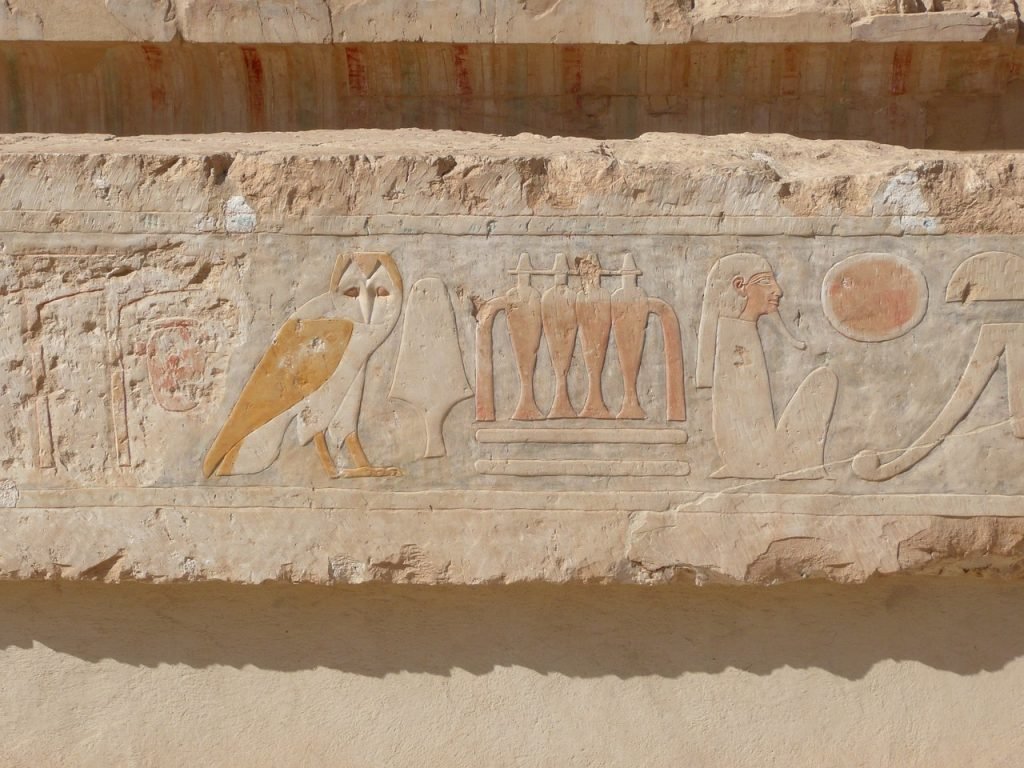
Tourism and National Identity
Ancient Egyptian culture is an integral part of Egypt’s national identity and a major source of tourism. The Pyramids of Giza, the Sphinx, and the temples in Luxor and Karnak are all iconic examples that have been carefully preserved over thousands of years to represent this ancient civilization. These monuments continue to draw visitors from around the world who come to witness their grandeur firsthand. Their importance has not diminished with time; they remain symbols for modern-day Egyptians as well as tourists looking for a glimpse into history’s distant past.
Read more: Unveiling the Top 10 Most Powerful Egyptian Gods | Ancient Egypt Deities
What are the main components of Egyptian cultural heritage?
Ancient Monuments and Sites
Egypt is an amazing country with a long and fascinating history. It is home to some of the most iconic ancient monuments and archaeological sites in the world, such as the Pyramids of Giza, the Sphinx, and the Valley of Kings. These incredible structures are essential components of Egypt’s cultural heritage that have been passed down through generations. They provide insight into Egypt’s past while also captivating visitors from around the globe today. Exploring these sites can be a truly rewarding experience!
Traditional Crafts and Art Forms
Egyptian cultural heritage is an incredibly rich and interesting topic, with many traditional crafts and art forms that have been passed down through generations. Pottery, weaving, and glassblowing – are just a few of the incredible things that Egyptians have been creating for centuries! It’s amazing to think about how much knowledge has been shared over time in order to keep these traditions alive. Not only do they provide us with beautiful pieces of artwork but also a glimpse into the past which can help us understand our present-day culture better.
Literature and Folklore
Egypt is a country with a deep and rich literary tradition that has been around for thousands of years. It includes works in poetry, prose, and drama that showcase the unique culture of Egypt. Its folklore is full of interesting stories, myths, and legends which reflect the beliefs and values held by Egyptians throughout their history. Exploring this literature can be an enjoyable way to learn more about Egyptian culture – its people’s pasts as well as their present-day lives!
What are the traditional clothing styles in Egypt?
Galabeya
The galabeya is a beautiful and traditional piece of Egyptian culture. It’s a long, loose-fitting robe made from either cotton or linen that can be adorned with embroidery or other decorative elements. Men and women alike have been wearing this garment for centuries, making it an iconic symbol of the country’s history and heritage. Wearing one is not only fashionable but also allows you to connect with your cultural roots in a meaningful way!
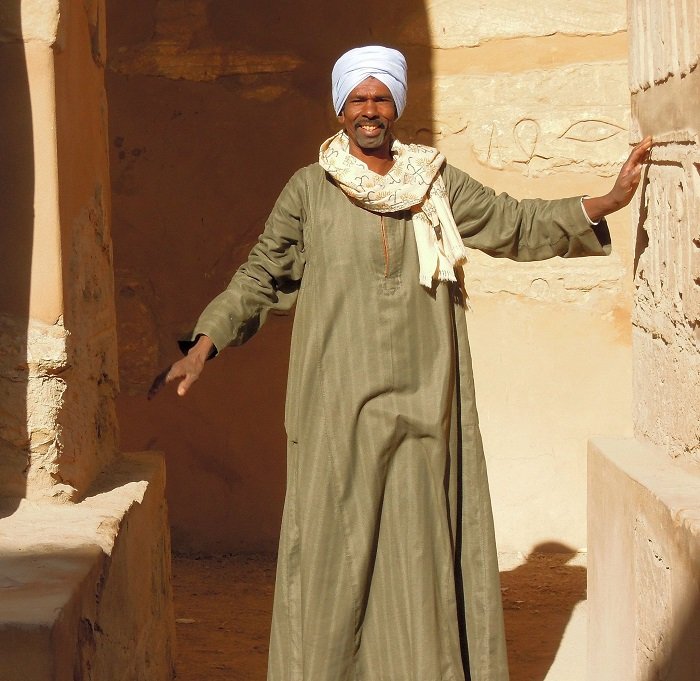
Head Coverings
in Egyptian culture, Muslim women often wear head coverings for the hijab. This is a beautiful tradition that has been passed down through generations and serves both religious and cultural purposes. The hijab symbolizes modesty, respectability, and piety – values that are important in the Islamic faith as well as to many Egyptians who practice other religions or no religion at all. It also carries with it a sense of pride in one’s identity which is something that can be shared by all members of society regardless of their beliefs or background. Wearing the hijab allows Muslim women to express themselves while still honoring their faith and culture – an admirable combination indeed!
Traditional Jewelry and Accessories
Egyptian culture is well known for its beautiful and unique jewelry and accessories. From large necklaces, bracelets, and earrings made from gold, silver, and precious stones to intricate designs inspired by ancient Egyptian motifs – these pieces are truly one-of-a-kind! Not only do they add a touch of elegance to any outfit but their vibrant colors also make them perfect conversation starters. Whether you’re looking for something special or just want to show off your style with an eye-catching accessory – Egyptian jewelry has it all!
What role does religion play in Egyptian culture?
Islam and Egyptian Society
Islam is an integral part of life in Egypt, with the majority of Egyptians following Sunni Islam. Faith plays a crucial role in Egyptian culture and it has shaped many social norms, customs, and laws. Islamic values are deeply ingrained into the daily lives of Egyptians; mosques serve as important community centers for prayer and communal activities. The presence of faith is evident throughout Egypt’s history and continues to be an essential element that binds its people together even today.
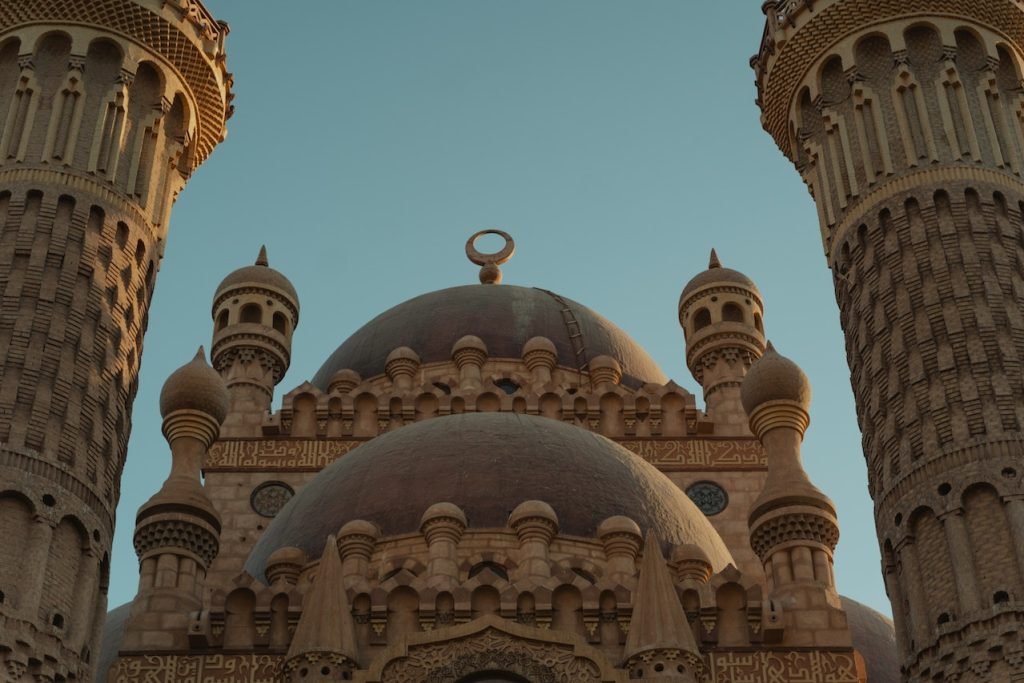
Egyptian Culture Christianity
The Coptic Orthodox Church is an important part of Egyptian culture and has a deep history that dates back to the early years of Christianity. It brings with it its own distinct traditions, art, and architecture which adds to the colorful cultural landscape of Egypt. Coptic Christians are known for their strong faith in God and commitment to preserving their religious identity. They have played a significant role in shaping Egypt’s rich history over centuries, making them an integral part of Egyptian culture today.
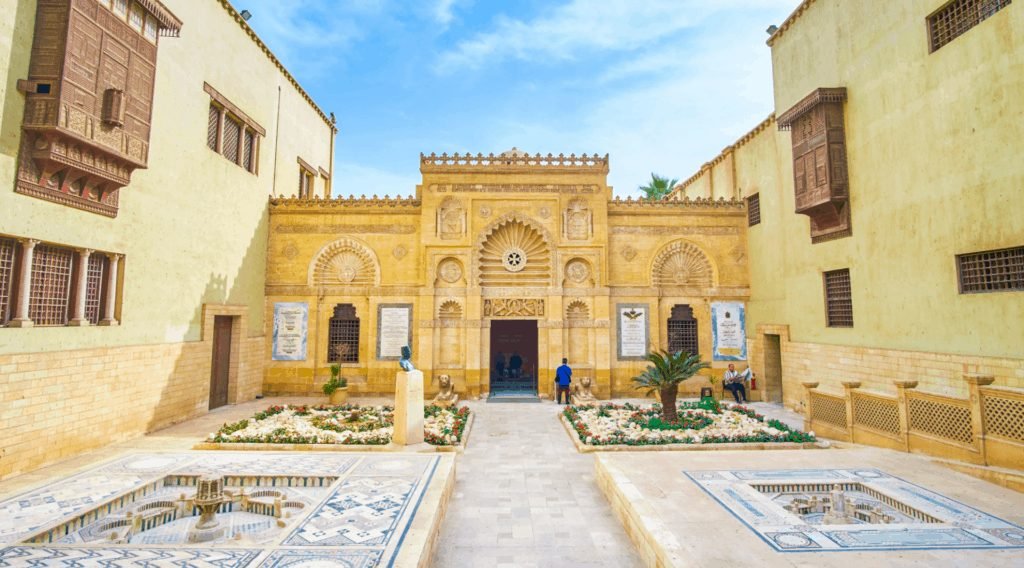
What are the most common Egyptian customs and etiquette?
Greetings and Communication
Egyptians typically greet each other with a handshake and a warm smile, often followed by polite inquiries about one’s health and well-being. It is common for close friends and family members to exchange kisses on the cheek. Communication in Egyptian culture is often indirect, with people striving to maintain harmony and avoid confrontation.
Dining Etiquette
It is a great honor to be invited into an Egyptian home for a meal. As a sign of respect, it is customary to bring small gifts such as flowers or sweets. During the meal, it is important to wait until the host begins eating before starting yourself, and always use your right hand as the left hand is considered unclean in this culture. With these customs in mind, you can enjoy your time with family and friends while experiencing some traditional Egyptian culture!
How do Egyptians celebrate weddings and other life events?
Egyptian Wedding Traditions
Egyptian weddings are truly a sight to behold! The vibrant colors, the joyful music and dancing, and of course the feasting – it’s all so exciting. It’s no wonder that these celebrations last for several days as there is just so much to enjoy. From pre-wedding events like the zaffa (wedding procession) and signing of marriage contracts to post-wedding festivities such as henna parties for brides with their female friends – Egyptian weddings really have something special about them that makes them unforgettable experiences.
Birth and Naming Ceremonies
In Egyptian culture, the birth of a child is a significant event, celebrated with various rituals and ceremonies. One such tradition is the “sebou” ceremony, held seven days after the birth, during which the baby’s name is officially announced, and family members and friends gather to offer blessings and gifts.
Funerals and Mourning
Funerals in Egyptian culture are solemn occasions, but they also provide an opportunity for family and friends to come together in support of one another. During the three-day mourning period, close family members wear Black clothing as a sign of respect and receive guests who offer their condolences. Prayers are said, Quranic verses are recited, and everyone pays their respects to the deceased. It is truly touching to witness this gathering of people coming together out of love and compassion during such difficult times.
Conclusion
Egyptian culture is truly captivating and inspiring. Its rich tapestry of traditions, beliefs, and customs has been evolving over thousands of years. From ancient influences to modern practices, the depth and beauty of this culture can be seen in all aspects of life – from family values to traditional clothing. Exploring the many facets that make up Egyptian culture gives us a deeper appreciation for its unique heritage which continues to shape today’s society in Egypt. It is an incredible journey through time that allows us to experience first-hand this fascinating cultural treasure!

